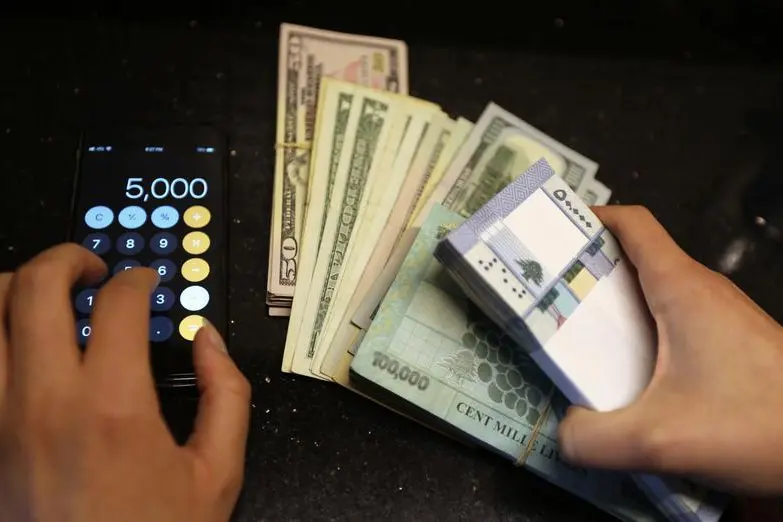PHOTO
BEIRUT - The Lebanese local currency continues hurtling down a slippery road, its value deteriorating rapidly, causing commodity prices to increase exponentially, and contributing to worsening living conditions.
The Lebanese Pound, or Lira, is currently estimated at LBP 60,000 per US dollar. This rapid downfall weighed down citizens' purchasing power, pushing them out to the streets in protest of the declining living situation and ongoing economic crisis, with no solutions on the horizon.
The economic specialist at Al-Joumhouria newspaper Tony Farah, while speaking to KUNA attributed the collapse, which began last December, to the Bank of Lebanon's measure of purchasing large amounts of US dollars.
This measure required enlarging the local money supply, allowing the Bank to purchase approximately USD 800 million, this enlarged sum put a strain on its own value and increased the deterioration pace even more.
Farah expects that should the bank freeze this purchasing operation, the pace of depreciation would slow down prompting some type of stability within days.
While political factors, namely the Beirut port investigation, contribute to the regression of local currency value, Farah explained that it is not in fact the main influencing reason.
To slow down this freefall, more dollars need to be pumped into the market, a decision that should be made by the Bank of Lebanon, but Farah questions whether the bank is willing to make it.
Financial analyst Alaa Ghanim told KUNA that the currency exchange rate of any country is a mirror image of its political, financial, and economic policies.
However, Ghanim continued, in Lebanon, politics is what sways the economy as the latter succumbs to political fluctuations, reflecting on the exchange rate and therefore local currency value.
He indicated that had Lebanon clearly drawn economic and political policies, a state of presidential vacancy wouldn't have affected the economy and living conditions as much.
Ghanim illustrated that the country's current financial standing is caused by the depletion of foreign currencies reserve, this increasing demand triggered the drop in local currency value.
Additionally, the state's failure to provide more imports, and its commitment to increasing public sector wages, drove the Bank of Lebanon to print more local currencies, increasing the Lira money supply. This along with the regression of foreign currency reserves further decreased the Lira value.
Ghanim voiced concern over the lack of breakthroughs on the horizon, as long as authorities refrain from paving a clear-cut path to navigate this economic financial crisis.
Long-term solutions, in Ghanim's opinion, lie in political stability, rebuilding international investors' confidence in Lebanon, and a clear plan overseen by international authorities, as this supervision is what could restore confidence in Lebanon.
Lebanon entered a state of the presidential vacancy on October 31, 2022, with a series of unsuccessful attempts to elect a president.
With a caretaker government in charge and limited jurisdiction, an economic plan with IMF-required reformations has yet to be devised.
All KUNA right are reserved © 2022. Provided by SyndiGate Media Inc. (Syndigate.info).





















